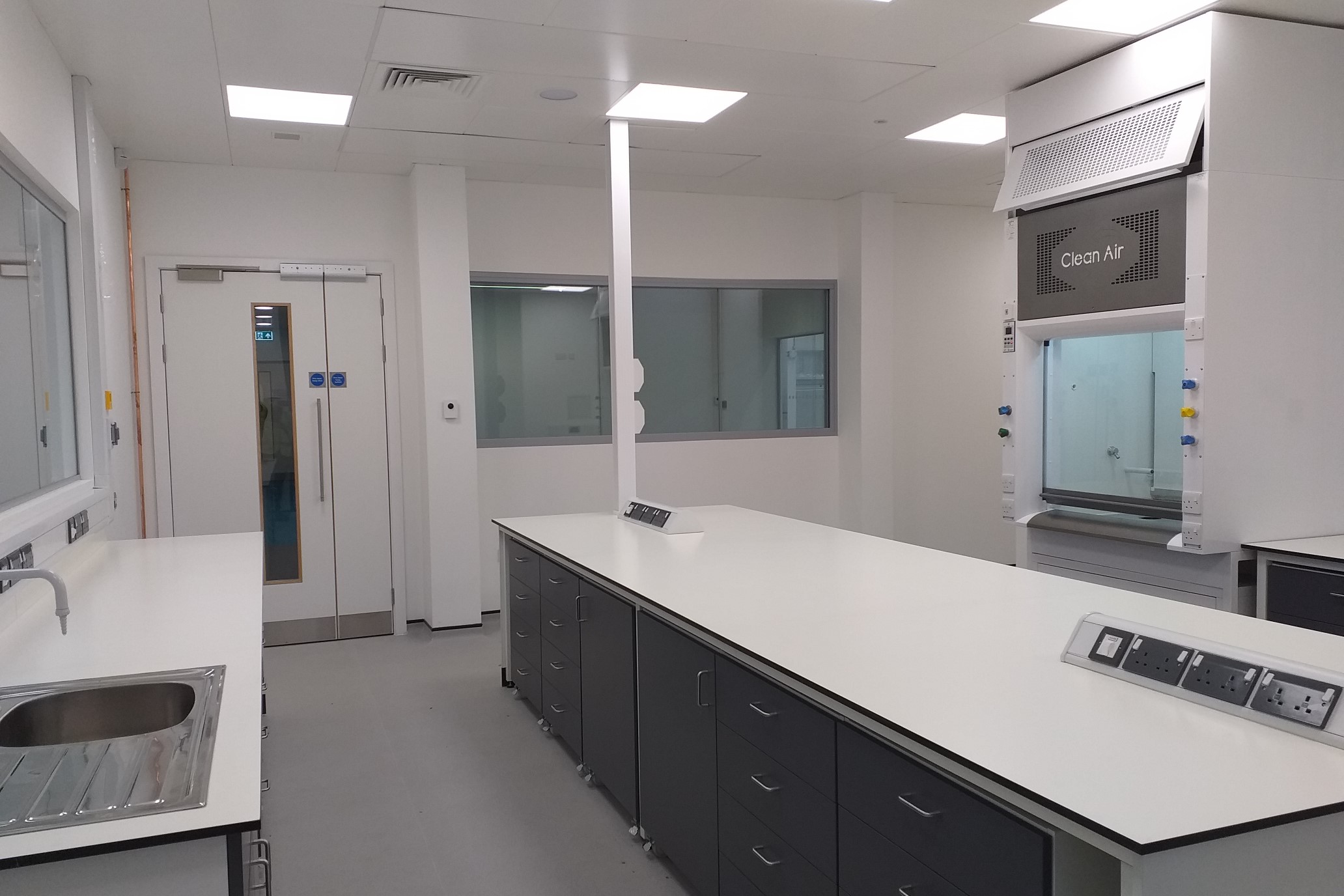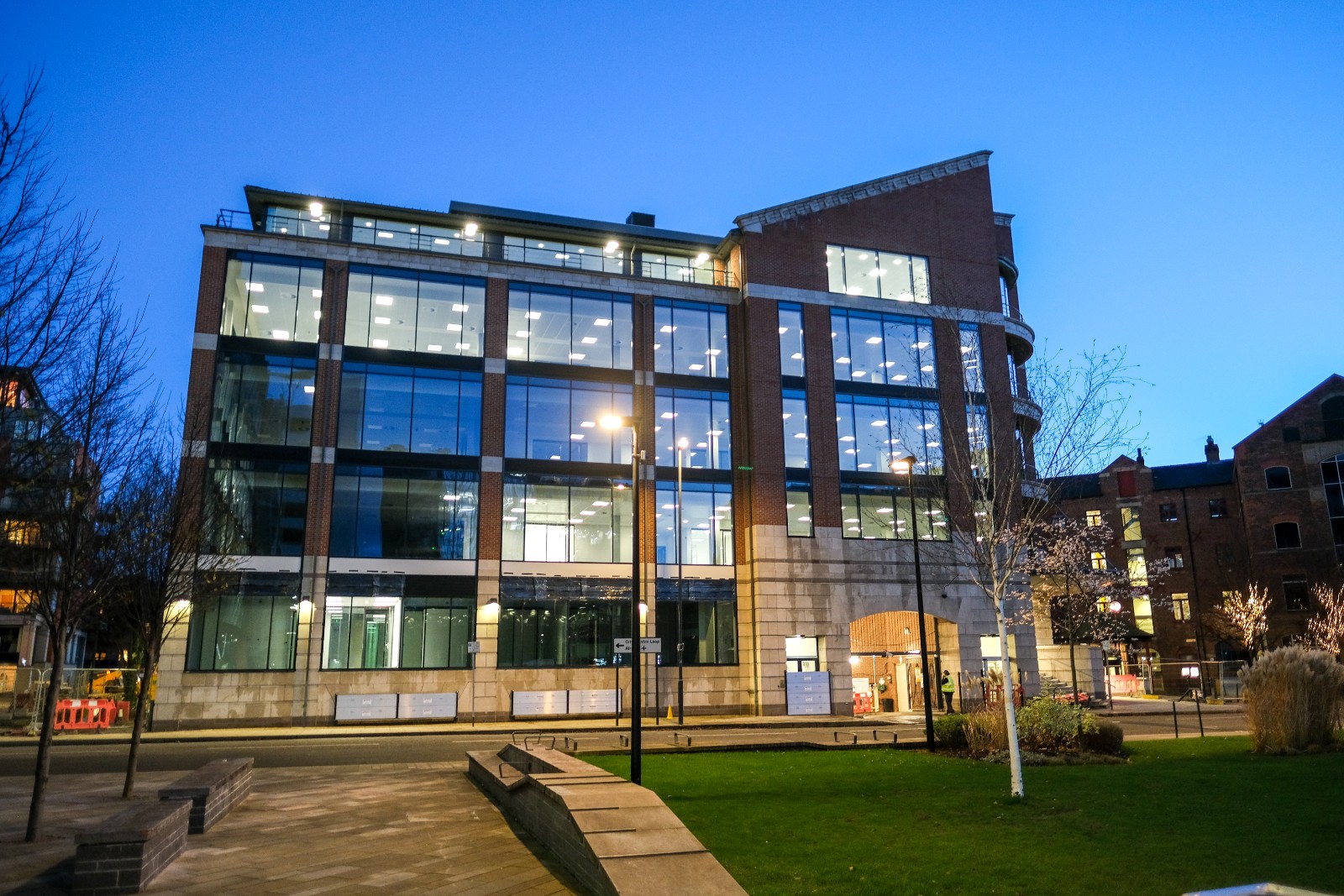%20cropped?$article-big-img-desktop$&qlt=85,1&op_sharpen=1)
Q: Where are you based?
Alice Pepperell: I’m based in Gardiner & Theobald’s Leeds office. I mainly work in the Yorkshire region, particularly Sheffield and Leeds; but at the moment I’m also working on a project in the North West of England. Before COVID-19, I normally spent 50% of the week on site and 50% in the office. At present, site visits are fortnightly and I am spending the majority of my time working from home, using Microsoft Teams to keep in contact with clients and colleagues.
Q: Tell us about your career.
AP: I graduated from Leeds Metropolitan University – now known as Leeds Beckett University – in 2012 with a degree in human geography and planning. While at university, I did some work experience with LandSec which led to my first role within the industry. Following graduation I worked as a retail delivery assistant at Sweett Group, a project management and cost management consultancy, working on Trinity Leeds – a shopping centre in Leeds city centre.
In 2016 I joined Turner & Townsend as an assistant project manager; after completing their graduate scheme I was promoted to project manager in 2017. At Turner & Townsend I worked predominately with the City of York Council on school refurbishments and community development schemes. I also worked on a number of schemes on behalf of the University of Leeds, which is where my love for higher-education projects began.
In September 2018 I joined Gardiner & Theobald as a project manager and became chartered in project management by RICS in November 2020. The following month I was promoted to senior project manager as a result of project success and good work.


Q: What projects are you focusing on at the moment?
AP: I mainly work on projects for a large university alongside the client’s internal project manager. My most recent projects include a new build research development facility in the North West, and a carbon capture facility (see Images 1 and 2) and sustainable aviation fuels centre in Yorkshire.
I’ve also been working on the refurbishment of 26 Sovereign Street for Leeds Building Society (see Image 3). The building society has consolidated its three city centre locations into one building to provide a new collaborative, sustainable environment for all colleagues.
Q: How do the skills you use differ between more traditional work – such as the building society refurbishment – and the higher-education projects?
AP: How you deal with the client is very different. Higher education clients are used to development, construction and expanding their portfolios on a regular basis; Leeds Building Society on the other hand may complete a project every couple of years. You have to adapt the way you communicate the process to each client.
Within higher education, there are multiple stakeholders to consider, so you have to keep in mind how the building will serve a variety of people. Communicating with all of them, making sure they’re aware of the design and construction process, while also managing their requests for changes to the building can be quite complex.
Ultimately, the skills used on both types of project are the same, it’s the approach that is just slightly different.
Q: What does a typical day look like for you at the moment?
AP: My normal, regular catch-ups on site are now online, other than that, though, I don’t think my routine has changed an awful lot as a result of the pandemic. I am still in regular contact with my clients, dealing with project emails and general enquiries, administering contracts, drafting minutes and reports and analysing progress on site against the programme.
The project teams have also adapted to the pandemic: contractors have online platforms where they share photos of progress on site so everyone can see how things are changing and developing. I think we’ve actually become more efficient – I’m finding that things are getting done a bit quicker because people are more available.

Q: What role does collaboration play in your work?
AP: Collaboration is massively important. I think it’s one of the qualities that’s really evolved in the construction industry and is vital to improving the sector. Project management is no longer a traditional leadership, decision-making role, but rather one that fosters collaboration and communication to ensure the best outcome for both client and contractor with the fewest issues.
Q: What is the best part of your job?
AP: No two days are ever the same. I can wake up thinking I’m going to do a set of minutes and a report, and end up doing something completely different. The other day I had to change my plans and go to site to check on flood barriers because the River Aire was set to overflow. The job is always unpredictable.
Q: Finally, what are your aspirations for the future?
AP: My long-term aspirations are to further my career at Gardiner & Theobald. I want to continue to develop close working relationships with clients, while managing and delivering facilities to support the growth of the economy, sustainability and provide a catalyst for future development.
